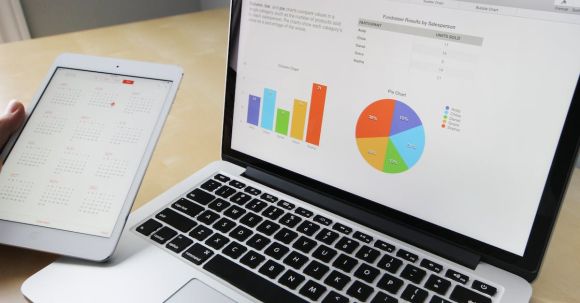In today’s digital age, businesses are generating massive amounts of data every day. This data, if properly analyzed, can provide valuable insights that can drive business growth and success. This is where data analytics comes into play. By harnessing the power of data analytics, businesses can uncover patterns, trends, and correlations that can help them make informed decisions and gain a competitive edge in the market. In this article, we will explore the importance of data analytics for businesses and how they can leverage it to gain valuable insights.
Understanding the Importance of Data Analytics
Data analytics is the process of examining large datasets to uncover hidden patterns, correlations, and other insights. It involves collecting, organizing, and analyzing data to extract meaningful information that can be used to guide decision-making. In today’s highly competitive business landscape, data analytics has become a crucial tool for businesses of all sizes.
Driving Business Growth with Data Analytics
Data analytics can help businesses drive growth by providing valuable insights into customer behavior, market trends, and operational efficiency. By analyzing customer data, businesses can gain a deeper understanding of their target audience, their preferences, and their purchasing patterns. This information can be used to tailor marketing campaigns, improve customer experience, and develop products and services that meet the needs and wants of the customers.
Identifying Market Trends and Opportunities
Data analytics can also help businesses identify market trends and opportunities. By analyzing market data, businesses can uncover emerging trends, understand consumer preferences, and identify gaps in the market. This information can be used to develop new products or services that cater to these trends and fill the gaps, giving businesses a competitive advantage.
Improving Operational Efficiency
Data analytics can also be used to improve operational efficiency. By analyzing operational data, businesses can identify bottlenecks, inefficiencies, and areas for improvement. This information can then be used to streamline processes, reduce costs, and increase productivity. For example, by analyzing customer service data, businesses can identify common customer complaints and address them proactively, resulting in improved customer satisfaction and retention.
Making Informed Decisions
Data analytics enables businesses to make informed decisions based on data rather than relying on intuition or gut feeling. By analyzing data, businesses can eliminate biases and make decisions based on facts and evidence. This reduces the risk of making costly mistakes and increases the likelihood of making decisions that lead to positive outcomes.
Challenges and Considerations
While data analytics offers immense opportunities, it also comes with its own set of challenges and considerations. Businesses need to ensure that they have the right infrastructure, tools, and expertise to collect, store, and analyze data effectively. They also need to address concerns around data privacy and security to maintain customer trust.
In conclusion, data analytics is a powerful tool that can provide businesses with valuable insights to drive growth and success. By leveraging the power of data analytics, businesses can gain a deeper understanding of their customers, identify market trends and opportunities, improve operational efficiency, and make informed decisions. However, it is important for businesses to carefully consider the challenges and considerations associated with data analytics and ensure that they have the necessary resources and expertise in place. With the right approach and mindset, businesses can unlock the full potential of data analytics and gain a competitive edge in the market.
